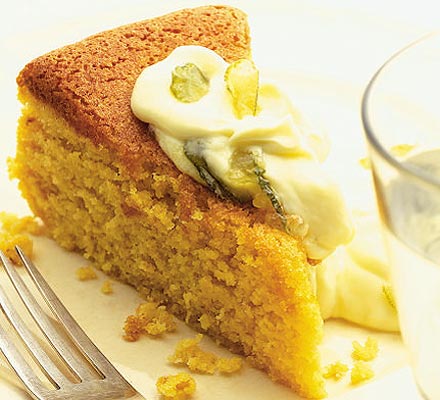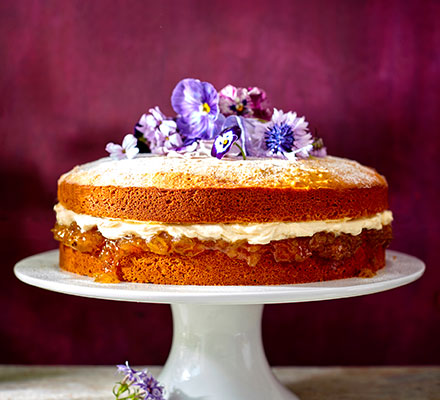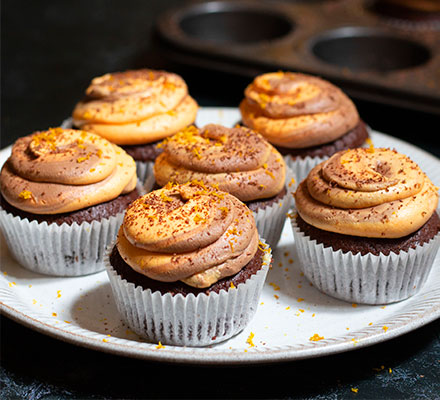-
Prep:30 mins
Cook:2 hrs
- Serves 8
- More effort
Nutrition per serving
-
kcal 839
-
fat 51g
-
saturates 22g
-
carbs 79g
-
sugars 54g
-
fibre 3g
-
protein 17g
-
salt 0.84g
Ingredients
- 3 large oranges
- scrap of unsalted butter
- 140g polenta, plus 1-2 tbsp
- 200g flaked almonds
- 1 scant tbsp baking powder
- 7 large eggs
- 2 large egg yolks
- 350g golden caster sugar
- 500g tub mascarpone
- 3-4 tbsp Cointreau or other orange liqeur, to taste
- 3-4 heaped tbsp homemade (or artisan) lime marmalade, to taste
Tip
Getting aheadThe cake can be baked up to 3 days ahead as long as it’s kept in a sealed tin.
Method
Boil two of the oranges (whole) in water, with the lid on the pan, for about 1 hour or until squidgy. Drain and leave to cool.
Butter a springform cake tin, 23cm/9in wide and 7cm/23?4in deep. Add 1-2 tablespoons of polenta, tip the grains around until the tin is coated, then knock out the excess. Set aside.
Whizz the flaked almonds to a grainy powder in a food processor, then mix in a bowl with the polenta and baking powder. Set aside.
Halve the cooked oranges and remove any pips. Remove zest from the third orange. Whizz the zest and the orange halves (with skin on) to a smooth purée in the food processor. Set aside.
Preheat the oven to 180C/Gas 4/fan oven 160C. Using a mixer or electric beaters, beat the eggs, yolks and sugar for a good 5-7 minutes until the batter looks like a very thick milkshake.
Quickly beat in the almond mixture, then the purée until just blended. Pour the batter into the tin, leaving at least 1.5cm/5?8in at the top.
Bake the cake in the middle of the oven. After 10 minutes, reduce the temperature to 150C/ Gas 2/fan oven 130C, bake for 30 minutes, then reduce temperature to 140C/fan oven 120C for a further 30 minutes (if you have a gas oven, cook at gas 4 for 10 minutes, then at gas 2 for 11?4 hours until done without reducing the temperature further). The cake is ready when it has risen, is golden-brown and the centre is just firm – don’t panic that it still feels fragile.
Leave the cake to cool in its tin (it will sink a little), then run a palette knife around the edge before releasing the sides. Only attempt to transfer it from the metal base to a decorative plate or stand if you have a proper cake lifter.
Whisk the liqueur and marmalade into the mascarpone. Serve the cake in thick wedges with the mascarpone dolloped on top.





















